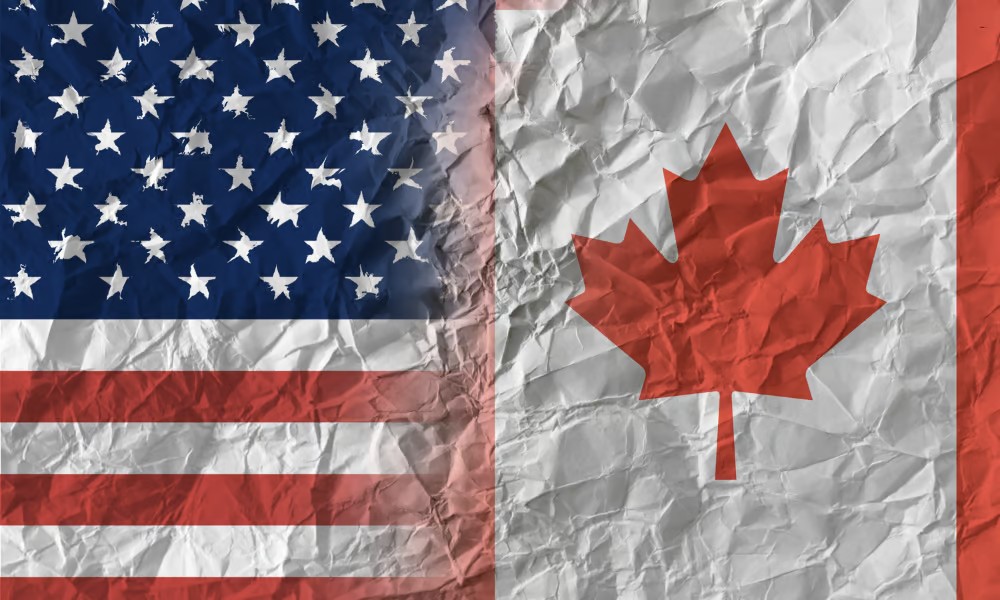Survey shows 'uncertainty prompting companies to examine every facet of their business to understand their options'

A majority of Canadian companies remain confident in their ability to endure a prolonged Canada-U.S. tariff war, even if it extends beyond 12 months, according to a recent survey.
Overall, 67 per cent of business leaders say their company can weather a trade dispute lasting more than a year.
However, 30 per cent anticipate significant profit losses if tariffs remain in place beyond that timeframe, while only three per cent fear their business may not survive, finds KPMG.
"The business community remains unwavering in its commitment to stand up for Canada," says Timothy Prince, the Canadian managing partner for clients and markets, KPMG in Canada, which did the survey. "The size of the tariffs and the length of time tariffs remain in place will impact their ability to weather the coming storm.
As the tariff standoff with the United States continues, most Canadian employers remain optimistic about their business outlook, according to a recent Statistics Canada (StatCan) study.
Layoffs anticipated amid tariff war
Half (50 per cent) of Canadian employers are reducing production or laying off employees in anticipation of tariffs.
Over a quarter (28 per cent) say they will start reducing headcount and production four to six months into a tariff war, according to KPMG’s survey of 602 Canadian business leaders, conducted between Feb. 13 and 28, 2025.
And one in two (50 per cent) expect their headcount to decrease in Canada over the next year while 21 per cent expect it will remain the same.
More than one million Canadians could lose their jobs if the U.S. tariffs are imposed for over a year, according to one expert.
Strategic responses to U.S. tariffs
In response to trade uncertainty, many employers are implementing strategic changes,
Overall, 76 per cent are undertaking a strategic review of their operations. This includes 80 per cent of industrial manufacturing companies, 87 per cent in the food processing sector, and 82 per cent in the automotive industry.
“The uncertainty is prompting companies to examine every facet of their business to understand their options,” says Prince.
Also, 62 per cent of employers say they would consider shifting production to the U.S. as a mitigation tactic if tariffs are imposed.
While 46 per cent report having three to five alternative markets outside the U.S., and 27 per cent have one or two, 52 per cent say relocating business to another jurisdiction would be challenging in the short and medium term.
Amid the ongoing tariffs issue, Alain Sawaya, national leader of KPMG in Canada's Supply Chain practice, is calling on Canadian employers to is urging Canadian employers to reconsider their supply chain strategies.
“A lot of companies have taken months and months of inventory and they’ve transferred it to the United States already,” says Joy Nott, a partner in KPMG’s customs and international trade practice, in a Financial Post report. “So I’m talking to companies who have maybe moved six to eight months’ worth of inventory to the United States, which normally that stuff would have been stored in Canada and shipped across as needed.”
Retaliatory tariffs, countermeasures
Despite their confidence in weathering the dispute, 86 per cent of business leaders believe Canada should counter U.S. tariffs with retaliatory measures, according to the KPMG report. This sentiment is echoed across the country:
- 89 per cent in Ontario
- 85 per cent in Quebec
- 80 per cent in B.C.
- 83 per cent in Alberta
Also, most Canadian business leaders want the federal government to take the following countermeasures:
- 83 per cent want Canada's countermeasures to be a targeted, dollar-for-dollar retaliatory response
- 86 per cent say it's time for increased pipelines and infrastructure from oil and gas-producing regions in the West and East coasts for export to non-U.S. markets to diversify energy export markets
- 86 per cent want Canada to move an increased volume of oil and gas (West to East pipelines) to reduce reliance on moving oil and gas from the U.S. to Eastern Canada
- 88 per cent want "strong and determined" political will at all levels of government to finally open up trade within Canada
- 84 per cent say the elimination of interprovincial trade barriers will be "extremely or very" important to the survival of their business in a trade war with the U.S.
- 85 per cent want interprovincial trade barriers eliminated as quickly as possible




